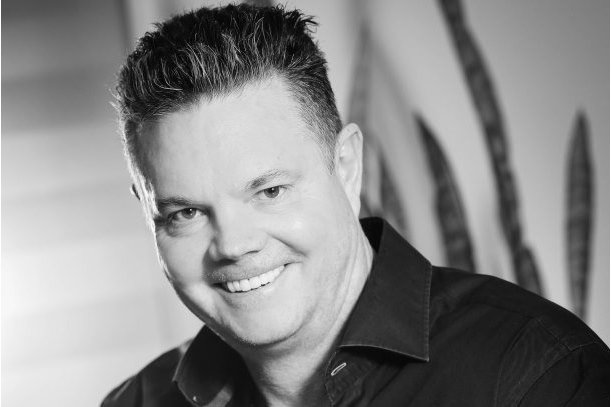Enabling Africa's youth to build tomorrow

Feature Highlight
With adequate investment in skills development and training, sub-Saharan Africa could add up to $500 billion every year to its economies.
Your old road is Rapidly agin'.
Please get out of the new one, If you can't lend your hand
For the times they are a-changin'.
Bob Dylan may have had revolution in mind when he penned the lyrics to his hit The Times They Are A'Changin'. But there is a larger truth to this legendary song. Society changes through its youth. Previous generations provide the shoulders to stand on, but the youth take our world forward.
Yet there is a catch. Society also changes through its innovations. Even though technology does not occur naturally and must be prompted, once it happens, the horse is out of the gate. It starts a new race, paradoxically one that isn't about winning - but not losing. Falling behind hurts economies and catching up comes at great cost.
How do societies lose pace? The obvious answer is that they fail to adopt new innovations. But adoption is really just a result - the end of an action. When societies fail to act on technology, they fail to adopt and consequently fall behind. We fail to act when we fail to give our youth the tools and understanding they require.
Dylan's song makes explicit reference to this: get out of the new road if you can't lend a hand. Neglecting to give our future generations the understanding they require is the surefire path to obsolescence. This is not news, not if you look at the urgency surrounding STEM education. Yet in an African context, this goes much further.
I am not a fan of the ideology that African nations should 'catch up' with the rest of the globe. By capitalising on the immense opportunities facing the continent, Africa can fast-track development and lead the global digital economy of the future.
Our greatest natural resource is no longer buried under the ground, waiting to be drilled or mined or extracted. Instead, it is the continent's large and growing youth population that is its greatest asset. It is predicted that by 2040, Africa's working age population will swell to 1.1 billion, creating the world's largest and fastest-growing talent pool.
The World Bank estimates that this demographic could generate between 11% and 15% GDP growth between 2011 and 2030. With adequate investment in skills development and training, sub-Saharan Africa could add up to $500 billion every year to its economies: the equivalent of one-third of the continent's current GDP.
This workforce is also set to be the most culturally diverse of any worldwide. The UN estimates there are as many as 3000 ethnic groups speaking more than 2000 different languages across the continent's 54 countries. Socially diverse groups have been found to be more innovative and better at solving complex problems than homogenous groups.
If we want to utilise this diversity, it is critical that we invest in our youth. The challenge goes beyond STEM disciplines, since technology is impacting every sphere of our worlds, every level of Maslow's famous hierarchy. It is obvious that we must promote technology thinking and understanding across society.
SAP has launched both the SAP Skills of Africa and SAP Africa Code Week programmes to support diversity and local development. It's about good business: the more skills there are, the better for SAP and its customers. Neither exist in a vacuum: the more Africa takes ownership of technology, the more all of us will benefit.
Bob Dylan sang about revolution. This is a revolution, one that Africa will lead. What must we do? Help Africa take the reins!
Brett Parker, Managing Director - SAP Africa at SAP
Other Features
-
The quiet influence of securitisation in financing Africa's energy ...
The scale of Africa’s energy transition demands financial solutions that are modern, secure, and scalable.
-
Lean carbon, just power
Why a small, temporary rise in African carbon emissions is justified to reach the continent’s urgent ...
-
Utilising the FTSA to unlock value in Nigeria’s gas production
Given the FG’s recent investment drive to fully monetise the country’s gas reserves, now is an opportune ...
-
Islamic finance posts double-digit growth in 2025
Forward-looking projections suggest that total assets are on track to cross USD 6 trillion by the end of 2026.
-
Can you earn consistently on Pocket Option? Myths vs. Facts breakdown
We decided to dispel some myths, and look squarely at the facts, based on trading principles and realistic ...
-
How much is a $100 Steam Gift Card in naira today?
2026 Complete Guide to Steam Card Rates, Best Platforms, and How to Sell Safely in Nigeria.
-
Trade-barrier analytics and their impact on Nigeria’s supply ...
Nigeria’s consumer economy is structurally exposed to global supply chain shocks due to deep import dependence ...
-
A short note on assessing market-creating opportunities
We have researched and determined a practical set of factors that funders can analyse when assessing market-creating ...
-
Rethinking inequality: What if it’s a feature, not a bug?
When the higher levels of a hierarchy enable the flourishing of the lower levels, prosperity expands from the roots ...
Most Popular News
- NDIC pledges support towards financial system stability
- Artificial intelligence can help to reduce youth unemployment in Africa – ...
- Nigeria’s December PMI hits 57.6 points as economic activities strengthen
- Afreximbank backs Elumelu’s Heirs Energies with $750-million facility
- Lagride secures $100 million facility from UBA
- GlobalData identifies major market trends for 2026













